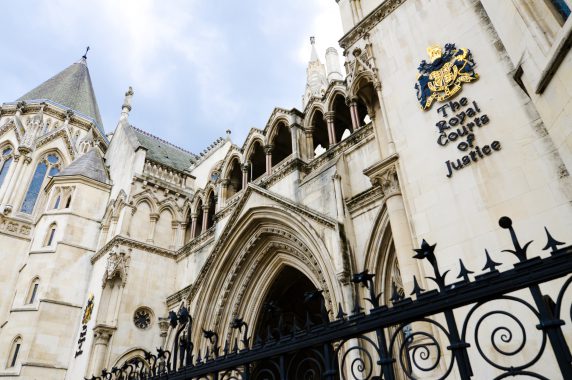BMA calls for GMC to lose right to appeal tribunal decisions

The BMA is calling for the GMC to lose its right to appeal decisions reached by its own fitness to practise tribunal service.
Responding to the Government’s rapid reivew into gross negligence manslaughter (GNM) charges in healthcare, the BMA said it was ‘deeply concerned’ about the regulator’s right to appeal Medical Practitioners Tribunal Service (MPTS) rulings in court – a right it gained just over two years ago.
The BMA also called for legal protection for doctors’ written reflections, which would mean the GMC could never demand access to the learning tool.
Health secretary Jeremy Hunt ordered the review into use of manslaughter charges against doctors following the case of Dr Hadiza Bawa-Garba – who was struck off the medical register following a GMC High Court appeal.
Further, in order to limit the number of cases and increase the safety of practising doctors, the BMA has called for the Director of Public Prosecutions to have to ‘personally authorise’ all prosecutions involving accusations of GNM in a healthcare setting, as well as for a special GNM police unit to be set up to investigate all such cases.
The BMA’s submission said: ‘The BMA has consistently opposed and remains deeply concerned about the right of the GMC to appeal against fitness to practise decisions.
‘We continue to believe that this right risks undermining doctors’ confidence in the independence and fairness of the Medical Practitioners Tribunal Service (MPTS).
‘Fitness to practise processes are very stressful for doctors and the perception of a risk of double jeopardy can only exacerbate this problem.’
The BMA added that while the GMC has ‘provided assurances’ that it will ‘never require access to a doctor’s reflection documents’, they ‘believe that it is necessary to amend section 35A (1A) of the Medical Act 1983 which currently allows the GMC to compel disclosure’.
This comes as the BMA is talks with the GMC about updates to written reflection guidance amid concerns raised by doctors.
BMA GP committee chair Dr Richard Vautrey said: ‘Clearly there’s been huge concern raised by the profession about the GMC’s action in appealing the panel’s decision. Even the GMC itself has questioned whether it should have that role, and it is something that we believe the Williams review could make recommendation on, recognising the real anxieties and worries that, not just GPs, but all of the profession has about this issue.’
‘Ultimately we want to ensure that doctors have confidence that they won’t become the victims of a system that is unsafe if they are doing their level best to provide patients with the best possible care. No doctor goes to work wanting to make mistakes or to cause errors or harm, and we need to ensure that we have a system that genuinely learns from each and every incident that takes place and doesn’t seek to scapegoat individual doctors.’
The Government’s GNM in healthcare review, led by Sir Norman Williams, is looking at where and how the line is drawn between GNM and negligence; and what processes are used before initiating a prosecution for gross negligence manslaughter.
The Medical Protection Society (MPS), which represents Dr Bawa-Garba, has called for an ‘urgent review’ of the GMC’s right to appeal decisions made by its own tribunal.
This follows Pulse’s revelation that seven doctors have been struck off after GMC appealed MPTS rulings since the first appeal case was heard in the High Court last May.
The GMC gained the right to appeal MPTS decisions at the end of 2015, but the first case was only heard last May as the High Court wanted it heard by senior judges. As of last month, the GMC had launched 23 appeals in total, although not all were in relation to having a doctor struck off.
BMA’s recommendations to the Sir Norman Williams review:
- That any GNM cases in healthcare are referred only after consultation with the Chief Coroner.
- That a national police unit is established to investigate GNM cases in healthcare.
- The test for bringing a prosecution is a difficult balancing act and to introduce consistency in a relatively small number of cases, it should be for the Director of Public Prosecutions to personally authorise all prosecutions involving accusations of GNM in a healthcare setting.
- That only experts who are in active clinical practice and hold a licence to practise are instructed in GNM cases.
- That it should be compulsory for all expert witnesses to go through core training including report writing, courtroom skills, cross examination and criminal law and procedure.
- That a mandatory human factors training programme is developed for everyone involved in the prosecution process for GNM in healthcare.
- That the exception reporting process is standardised, extended to all doctors and a national database for exception reports is established so that data can be properly analysed and used to improve training and working experiences for doctors and outcomes for patients.
- That legal protection is provided to reflections in all education and training documents.
- That Section 35A (1A) of the Medical Act 1983 is amended so it excludes information provided for the sole purpose of education and training.
- That the GMC should lose its right to appeal Medical Practitioners Tribunal Service (MPTS) decisions.
Source: BMA
Pulse October survey
Take our July 2025 survey to potentially win £1.000 worth of tokens











